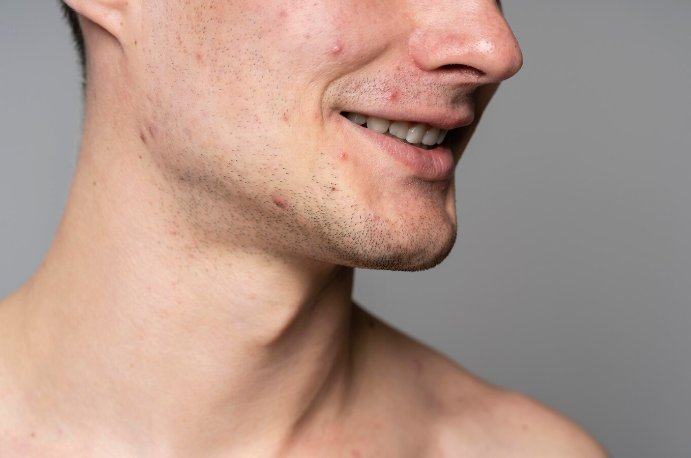
While acne is often perceived as a minor physical ailment, its repercussions extend beyond the skin’s surface. The psychological distress associated with persistent acne can significantly impact one’s mental well-being. That’s why Acne and acne scar treatments in Singapore can play a vital role by improving the skin’s appearance, boosting self-esteem, and reducing psychological distress.
Understanding this intricate link between mental health and acne is crucial to promoting holistic well-being. This post aims to explore the multifaceted impact of acne on mental health and provide strategies to manage both effectively.
Table of Contents
The Impact of Acne on Mental Health
Living with acne can be a deeply challenging experience, often leading to feelings of embarrassment, frustration, and even depression. Personal stories from individuals who have struggled with acne reveal a common theme: the emotional toll it takes is profound. For example, a study conducted in Singapore found that 54% of acne patients reported a significant negative impact on their self-esteem and social interactions.
Research also underscores the connection between acne and mental health issues. Dermatological studies indicate that individuals with acne are more susceptible to anxiety, depression, and social withdrawal. The visible nature of acne can lead to heightened self-consciousness, affecting one’s confidence and willingness to engage in social activities.
Expert opinions from dermatologists and mental health professionals reinforce the need to address the psychological aspects of acne to ensure comprehensive care.
Strategies for Managing Mental Health with Acne
Practical Tips for Self-Care and Stress Management
- Adopt a Healthy Lifestyle: Regular physical activity, such as jogging, swimming, or participating in fitness classes, can improve circulation and promote healthier skin. Maintaining a balanced diet rich in fruits, vegetables, lean proteins, and whole grains provides essential skin health nutrients. Ensuring adequate sleep, ideally 7-9 hours per night, allows the body to repair and rejuvenate, further enhancing skin health and mental well-being.
- Practise Mindfulness: Techniques such as meditation, deep-breathing exercises, and yoga can help alleviate stress, known to exacerbate acne. Practising mindfulness involves being present in the moment and can be achieved through focused breathing, progressive muscle relaxation, or even mindful walks in nature. These practices help reduce stress hormones like cortisol, which can trigger or worsen acne flare-ups, promoting clearer skin.
- Set Realistic Expectations: Understand that acne treatment is a gradual process, often requiring consistent effort and time. Consulting with a dermatologist can provide a tailored treatment plan, including topical treatments, oral medications, or lifestyle adjustments. Setting realistic goals, such as tracking progress monthly rather than daily, and being patient with your progress can reduce anxiety and foster a more positive mindset. It’s important to remember that improvement takes time and persistence.
Building Self-Esteem and Coping with Acne-Related Anxiety
- Focus on Your Strengths: Redirect your focus towards your abilities and achievements rather than your appearance. Celebrate small victories and positive attributes. Take time each day to acknowledge and appreciate the skills and talents you possess, whether in your personal or professional life. This shift in focus can help build confidence and reinforce a positive self-image.
- Seek Support: Talking to friends, family, or support groups can provide a sense of belonging and reduce feelings of isolation. Sharing experiences with others who understand your struggles can be immensely therapeutic. Consider joining local or online communities to connect with people facing similar challenges. Seeking professional help from a counsellor or therapist can also be beneficial in providing coping strategies and emotional support.
- Limit Social Media Use: Platforms emphasising physical appearance can worsen self-esteem issues. Curate your social media feed to include positive, uplifting content and limit exposure to unrealistic beauty standards. Set specific times for social media use and take regular breaks to avoid the constant comparison trap. Follow accounts that promote body positivity, self-acceptance, and mental well-being to create a more supportive online environment.
The Role of Skincare in Mental Health

A consistent skincare routine can offer more than just physical benefits; it can also serve as a form of self-care, helping to improve mental health. Engaging in skincare can provide a sense of control and routine, which can be comforting amidst the unpredictability of acne.
Psychological Benefits of a Skincare Routine
- Mindful Skincare Practices: Incorporate mindfulness into your skincare routine by paying close attention to the sensations and movements involved. This can transform a mundane task into a soothing ritual.
- Positive Affirmations: Use your skincare routine as an opportunity to practise positive self-talk. Affirmations such as “I am taking care of my skin” and “I am more than my acne” can reinforce self-compassion.
Choosing the Right Products
Suitable skincare products are essential to avoid exacerbating acne and potentially affecting mental health. Here are some tips:
- Consult a Dermatologist: Before starting any new skincare regimen, seek advice from a dermatologist who can recommend products tailored to your skin type and condition.
- Avoid Overuse of Products: Too many products can irritate the skin and worsen acne. Stick to a simple, consistent routine with products that are effective for acne-prone skin.
- Patch Testing: Always perform a patch test before incorporating new products to ensure they do not cause adverse reactions.
Seeking Professional Help
Acknowledging the need for professional help is vital in managing acne and its psychological effects. Dermatologists can offer medical treatments, including acne scar treatments, that may not be available over the counter. At the same time, mental health professionals can provide strategies to cope with the emotional burden of acne.
- Multidisciplinary Approach: Combining dermatological treatment with psychological support can simultaneously address acne’s physical and mental aspects.
- Resources for Support: Seek out support groups or therapy sessions where you can share your experiences and gain insights from others facing similar challenges.
Resources for Finding Support
- Local Clinics and Hospitals: Many clinics and hospitals in Singapore offer specialised dermatology and mental health services. Reach out to reputable institutions for referrals and appointments.
- Online Platforms: Several online resources and communities support those dealing with acne. These platforms can offer valuable information and a sense of community.
Dealing with acne is not just about finding the right skincare products; it is also about managing the psychological impact it can have. By understanding the link between acne and mental health, adopting effective self-care strategies, and seeking professional help when needed, you can navigate this challenging journey with resilience and confidence.
Remember, your mental health is just as important as your physical health, and prioritising both is the key to overall well-being. Stay informed, stay positive, and take proactive steps towards managing your mental health alongside acne.
